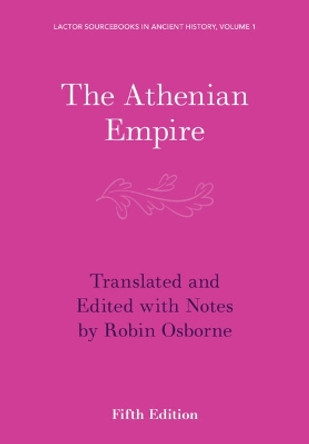Description
The first focused study of the impact of classical Athenian comedy on the literature, art and culture of the Roman Imperial Era (first to fifth centuries CE).
About the Author
Tom Hawkins is Associate Professor of Classics at Ohio State University, USA, and the author of Iambic Poetics in the Roman Empire (2014). C. W. Marshall is Professor of Greek at the University of British Columbia, Canada. His publications include The Stagecraft and Performance of Roman Comedy (2006), Classics and Comics (2011) and No Laughing Matter (Bloomsbury, 2012) and The Structure and Performance of Euripides' Helen (2014).
Reviews
Marshall and Hawkins have assembled a diverse and stimulating collection of essays, which will prove to be a valuable resource for future work in this area. * Mouseion *
Contributors treat diverse authors, texts, and evidence, yet each chapter remains firmly rooted in a measured consideration of the received genre. Readers with an interest in Athenian comedy, Old or New, or in a cautious yet productive approach to comic reception, will discover much of value in this well-executed volume. * Classical World *
This volume is an important contribution to the field that does much to dispel some of the agnoia with which it begins. A volume such as this one cannot but leave one wanting more, in the most positive sense ... the contributions contained herein will no doubt play a vital role in shaping the direction to come. * Bryn Mawr Classical Review *
How did Greeks and Romans of the Roman Empire read, write about, and use the Athenian comedies of the 4th and 5th centuries BCE? The papers in this collection give a range of thought-provoking answers to this question. In the introductory essay, Marshall (Univ. of British Columbia) and Hawkins (Ohio State) trace the development of Greek comedy from the 5th century BCE through the first centuries CE and discuss the most central topics in scholarship on the reception of Greek comedy in the Roman Empire. This provides an excellent framework from which to understand the remaining 12 essays, which discuss various authors (e.g., Juvenal, Aelian, Alciphron, Plutarch), genres (oratory, satire, epistles), and topics (adultery as a plot device, comic actors, and performance, among others) ... Readers thus gain an understanding of not only the importance of the topic itself but also the productive methods available for studying it. A fine contribution to the scholarship on an important but often-neglected subject. Summing Up: Recommended. Upper-division undergraduates through faculty. * CHOICE *
This volume offers a stimulating exploration of aspects of Athenian comedy in the Roman Empire, and one can only second the hope of the editors that more research in this field will follow. * Classics Ireland *
The essays herein cover a broad range of authors and time periods and readers from many interests are likely to find something engaging in these essays. * The Classical Journal *
The reader will come away wanting to know more about how these and other authors of the Roman imperial period engaged with Greek comedy and other performance genres ... Overall this is a volume that offers an impressive range of approaches to this topic while raising important questions for how we treat this material, all of which will stimulate further discussion in this area. * The Classical Review *
This volume includes an extensive bibliography and a helpful index. All in all, a collection that brings new insights into the Greek reception of Athenian comedy. (Bloomsbury Translation) * Sehepunkte *
An exciting collection that exposes not only the enduring influence of classical Athenian comedy but also the depth and sophistication of later Greeks' response to it. Like their subject matter, these essays are vibrant, acute, learned and not infrequently surprising. * Tim Whitmarsh, A. G. Leventis Professor of Greek Culture, University of Cambridge, UK *
These studies offer a rich panorama of the continuing vitality of Greek comedy throughout the rest of antiquity. We can see comedy, Old and New, continuing to engage, inspire - and sometimes enrage - small town audiences and imperial elites, and it's well worth joining the throng! * Niall W. Slater, Samuel Candler Dobbs Professor of Latin and Greek, Emory University, USA *
This volume, carefully edited by C. W. Marshall and Tom Hawkins, makes an important contribution to the neglected topic of the reception of ancient Greek comedy in the Roman imperial period. Essays on evolving interpretive views of the poets of Old and New Comedy, primarily Aristophanes and Menander, are supplemented with information on epigraphic evidence for performance into the third century CE and by references to dramatic illustrations. The contributors analyze a wide range of imperial authors, from the satirist Juvenal to the epistolographer Aristaenetus, to assess their knowledge of comic texts and the processes by which comedy was adapted into both prose and poetry. The essays dealing with Lucian's deep understanding of the comic mode are particularly revealing. -- Kathryn Gutzwiller, Professor of Classics, University of Cincinnati, USA, and Past President of the Society for Classical Studies
Book Information
ISBN 9781472588838
Author C. W. Marshall
Format Paperback
Page Count 304
Imprint Bloomsbury Academic
Publisher Bloomsbury Publishing PLC
Weight(grams) 470g








